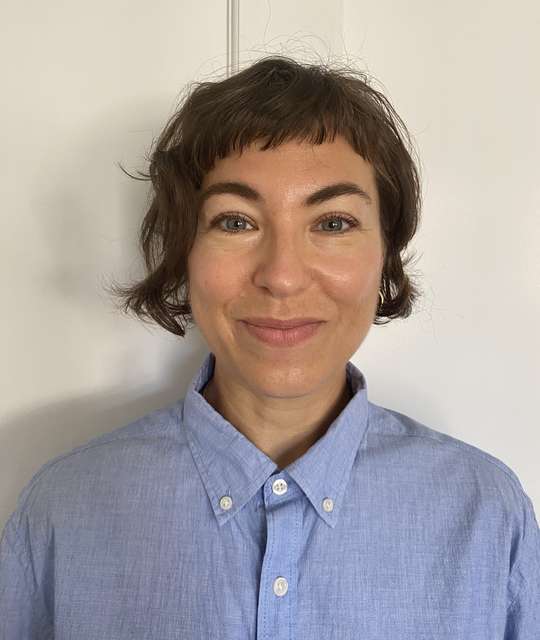Early Women Psychoanalysts: History, Biography, and Contemporary Relevance
**PACIFIC TIME**: November 14, 2024, 6:30 - 8:30 PM
PLEASE MAKE NOTE OF THIS IMPORTANT INFORMATION:
- Pre-registration is required.
- This program will be presented via Zoom only.
- You will receive confirmation and details by email. Contact Byrd at byrdb@n-c-p.org if you have questions.
Early Women Psychoanalysts: History, Biography, and Contemporary Relevance is dedicated to the early European women psychoanalysts. Often ignored by males in their fields and, later, by historians, these women enhanced the study and practice of psychoanalysis, offering us invaluable histories. The essays in this volume provide definitive introductions to the lives and legacies of these women, from the famous to the forgotten, who forged psychoanalysis in the smithy of their souls. An invaluable resource for every serious student of the field.
This presentation will discuss biographies of fourteen women psychoanalysts (most of them Jewish), born in Europe before the First World War. Each of the stories is unique, yet each also entwines with many other stories, sharing with them themes and topics linked to the issues of gender, Jewishness, women’s education, politics, migration, and memory. Most recognizably, the early lives of these women, their career choices and paths, were affected, challenged, and derailed by sociopolitical circumstances and developments: WWI, the rise of antisemitism and Nazism in the interwar period, the Great Depression, the Second World War, and the Shoah. Many early women psychoanalysts also found themselves entangled in the Freudian movement’s internal politics and male conflicts. These daunting circumstances and other complex individual factors contributed to the fact that these fourteen women have been either left entirely out of the record or inadequately remembered (along with their contributions to psychoanalysis).
"What is extraordinary about Klara Naszkowska's edited volume is not simply its focus on the lives and work of neglected, marginalized, and yet seminal women psychoanalysts. In addition, the chapters vivify ways in which a malignant mix of misogynistic, antisemitic, fascistic, and longtime sociocultural norms both hobbled, yet also galvanized some of the greatest psychoanalytic voices of all time."
Emily A. Kuriloff, PsyD, author of Contemporary Psychoanalysis and the Legacy of the Third Reich: History, Memory, Tradition (Routledge, 2016). Training and Supervising Psychoanalyst, Director of Clinical Education Emeritus, William Alanson White Institute, New York
Program objectives
After attending the presentation, participants will be able to:
- Discuss the importance of historical developments in shaping the history of psychoanalysis in the early 20th century, including the rise of antisemitism and Nazism in Germany, Austria, and Hungary, and autocracy in Poland
- Identify common familial, educational, political, socioeconomic, and cultural features that shaped the history of women in psychoanalysis in interwar Europe
- Describe the circumstances that facilitated entry of women into the psychoanalytic movement
- Develop a familiarity with several biographies of early women psychoanalysts
- Discuss the complex identities of the first women psychoanalysts, with a focus on the importance or lack thereof of gender and Jewishness
 Klara Naszkowska, PhD, is a cultural historian specializing in the early history of psychoanalytic thought. She is founding director of the International Association for Spielrein Studies (www.spielreinassociation.org), and 2019/2020 Fulbright Visiting Scholar at Union Theological Seminary (Columbia University). Recent and forthcoming publications: “Passions, Politics, and Drives: Sabina Spielrein in Soviet Russia,” in Sabina Spielrein and the Beginnings of Psychoanalysis: Thought, Word, and Image (Routledge, 2019) and “Sabina Spielrein: Searching for her own path,” in Psychoanalysis in the Shadow of War and Holocaust (in Polish, Universitas, 2020). Klara is the head of the scientific and organizing committee of the first International Conference “Sabina Spielrein and the Early Female Pioneers of Psychoanalysis” (13-15 April 2021, Warsaw).
Klara Naszkowska, PhD, is a cultural historian specializing in the early history of psychoanalytic thought. She is founding director of the International Association for Spielrein Studies (www.spielreinassociation.org), and 2019/2020 Fulbright Visiting Scholar at Union Theological Seminary (Columbia University). Recent and forthcoming publications: “Passions, Politics, and Drives: Sabina Spielrein in Soviet Russia,” in Sabina Spielrein and the Beginnings of Psychoanalysis: Thought, Word, and Image (Routledge, 2019) and “Sabina Spielrein: Searching for her own path,” in Psychoanalysis in the Shadow of War and Holocaust (in Polish, Universitas, 2020). Klara is the head of the scientific and organizing committee of the first International Conference “Sabina Spielrein and the Early Female Pioneers of Psychoanalysis” (13-15 April 2021, Warsaw).CE/CME Credit:
There are no CE/CME Credits for this event.RECORDING:
This event will not be recorded.
